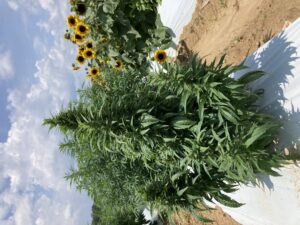
Late July Hemp Pics-NC Alternative Crops & Organics
7/29/2021 – It is a very beautiful, but very hot day in western North Carolina. And research associate, Margaret …



El inglés es el idioma de control de esta página. En la medida en que haya algún conflicto entre la traducción al inglés y la traducción, el inglés prevalece.
Al hacer clic en el enlace de traducción se activa un servicio de traducción gratuito para convertir la página al español. Al igual que con cualquier traducción por Internet, la conversión no es sensible al contexto y puede que no traduzca el texto en su significado original. NC State Extension no garantiza la exactitud del texto traducido. Por favor, tenga en cuenta que algunas aplicaciones y/o servicios pueden no funcionar como se espera cuando se traducen.
Inglês é o idioma de controle desta página. Na medida que haja algum conflito entre o texto original em Inglês e a tradução, o Inglês prevalece.
Ao clicar no link de tradução, um serviço gratuito de tradução será ativado para converter a página para o Português. Como em qualquer tradução pela internet, a conversão não é sensivel ao contexto e pode não ocorrer a tradução para o significado orginal. O serviço de Extensão da Carolina do Norte (NC State Extension) não garante a exatidão do texto traduzido. Por favor, observe que algumas funções ou serviços podem não funcionar como esperado após a tradução.
English is the controlling language of this page. To the extent there is any conflict between the English text and the translation, English controls.
Clicking on the translation link activates a free translation service to convert the page to Spanish. As with any Internet translation, the conversion is not context-sensitive and may not translate the text to its original meaning. NC State Extension does not guarantee the accuracy of the translated text. Please note that some applications and/or services may not function as expected when translated.
Collapse ▲
7/29/2021 – It is a very beautiful, but very hot day in western North Carolina. And research associate, Margaret …
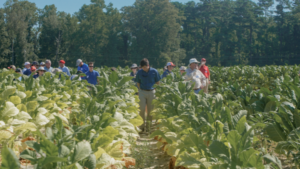
Please share across your networks. The NC State University Organic Working Group will be holding an Organic Commodities Field Day …
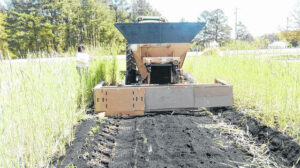
The biggest handicap to growing crops in the Sandhills is the sandy soil. Acidic and low in organic matter, …
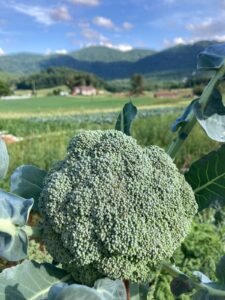
7/16/21 – Our team is very busy in mid-July with research projects scattered across the state from as far …
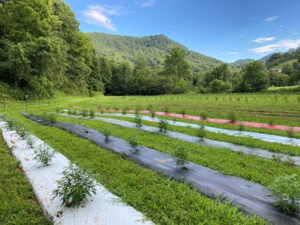
6/9/2021 – By Katherine Learn, graduate student/research assistant, and Margaret Bloomquist, research associate (this article was also sent to …

5/26/2021 – Research assistant and graduate student, Katie Learn, provided these pictures of recent activities in our North Carolina …

5/25/2021 – We got an amazing response to our spring research update with requests for more frequent updates with …
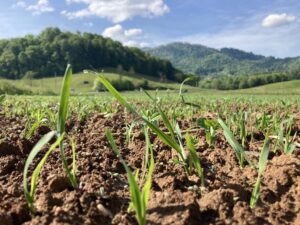
5/18/2021 – It is a beautiful spring in western NC and our field research is in full swing once …

5/7/2021 – The Appalachian Beginning Forest Farming Coalition announces the first in-person forest farming workshop for 2021! The event …
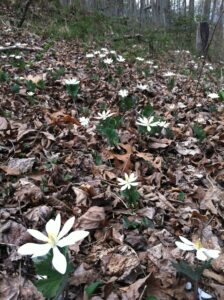
4/30/2021 – A student at Virginia Tech is doing a study on bloodroot and red trillium and has a …
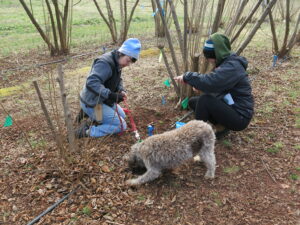
4/27/2021 – To create good fertility recommendations for North Carolina truffle growers, we need more data!!! So, in cooperation …

3/30/2021 – POSITION IS FILLED!!! We are hiring a new team member to work in our NC Alternative Crops …

3/6/2021 – In 2020, United Plant Savers, the NC Ginseng Association, and Living Web Farms put on a virtual …

2/11/2021 – Birds can wreck havoc on a field of sweet corn and control methods are limited, especially for …

1/6/2021 – The new Southeastern Vegetable Crop Handbook is now available online. Extension vegetable specialists across the Southeast come …
This series is designed for small farmers interested in learning about food safety and obtaining their Good Agriculture Practices …
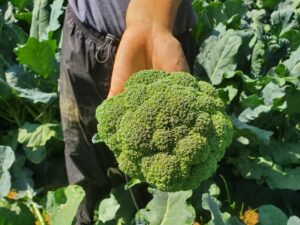
SAVE THE DATES: FEBRUARY 24 AND 25, 2021 *REGISTRATION OPEN* 12/15/2020 – The tradition of the Winter Vegetable Conference and …
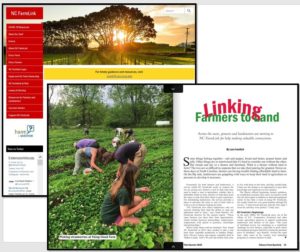
NC FarmLink was recently featured in Tobacco Farm Quarterly. In the article, found on page 18, journalist, Lara Ivanitch …

Check out this 15 minute video summary by Economist Dr. Charlie Hall on the economic, environmental, and health and …

Need answers to floriculture, vegetable, fruit, or weed questions? The Department of Horticultural Science invites you to try their powerful, but focused …
This publication, chapter 7 of the North Carolina Soybean Production Guide, discusses disease management in …
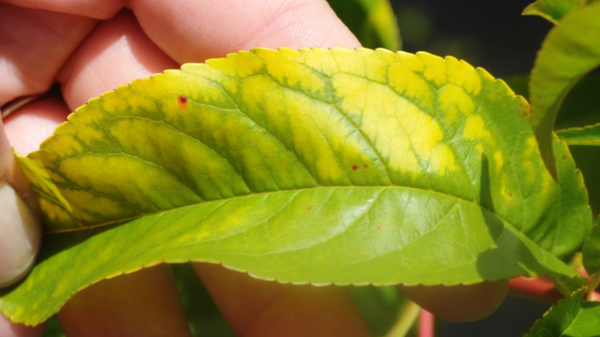
This factsheet describes the symptoms of a photosystem II (PS II) inhibitor herbicide injury.

Southern bacterial wilt of tomatoes is addressed in this factsheet.

Similar to zoysiagrass mites, bermudagrass (Eriophyes cynodoniensis) mites are tiny, worm-like arachnids present in the …

This vegetable pathology factsheet describes the identification and treatment of anthracnose of pepper.

Establishing and maintaining quality annual color beds requires a plan to prevent and control weeds. …

This publication describes the invasive Callery pear species, its offspring, and how it can harm …
This factsheet describes the biology of the cane lace bug or bamboo lace bug, Leptodictya …